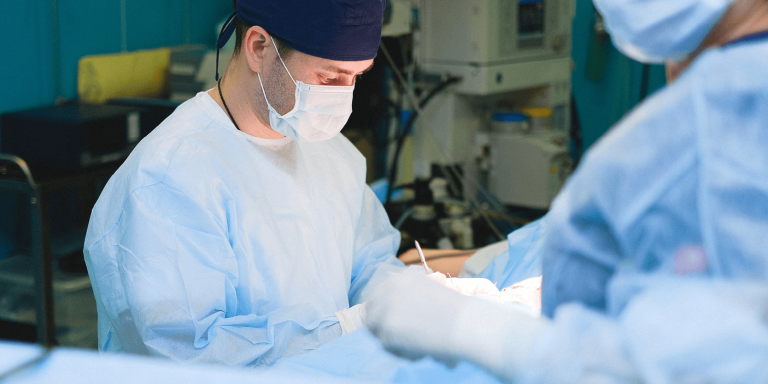
The UMR 1190 or Translational Diabetes Research Laboratory is a joint research unit of the University of Lille, Inserm, the Lille University Hospital and the Pasteur Institute of Lille. The unit focuses on translational research on diabetes and in particular on human islet transplantation (pancreatic cells that produce insulin) and metabolic surgery. In fact, she recently received ANR funding in 2022 for BIB-UP, a project for which she will use AI and modeling to better understand and predict the outcomes of metabolic surgery.
According to figures from the Pasteur Institute in Lille, there were 463 million diabetics aged 20 to 79 worldwide in 2020, including 5 million in France. In addition, it is estimated that 700,000 people in our country have this metabolic disease and are unaware of it.
Headed since 2020 by Professor François Pattou, and accredited by INSERM as ERIT-M the same year, the team became UNIT-M in 2005, then U859 in 2009 and UMR – 1190 in 2015.
In 2009, it joined the team of Philippe Froguel and Bart Staels to form the European Genomics Institute for Diabetes (EGID) research federation, which was recognized in 2011 as a Laboratory of Excellence (Labex) by the Programme d’Investissements d’Avenir [PIA].
The research team is located on the campus of the University Hospital of Lille, in the Research Pole of the Faculty of Medicine and includes a Biotherapy platform for the production of human islets, an animal facility (rodents and minipigs) and the DiabInnov platform (industry-university platform). The clinical studies are all conducted at the Huriez Hospital, which is located near the laboratory.
Translational research on diabetes at UMR 1190
The team brings together clinical researchers, endocrine surgeons, diabetologists, biologists and a veterinarian who work on the development of innovative therapies for severe forms of diabetes and their clinical application. His research focuses on the production of human islets and the treatment of type 1 diabetes by islet transplantation as well as the treatment of type 2 diabetes by metabolic surgery.
Metabolic surgery
Bariatric surgery or obesity surgery aims to permanently reduce the weight load by modifying the anatomy of the digestive system. The surgical procedure is either gastric bypass (Roux-en-Y) or vertical gastrectomy (sleeve).
In patients who also have type 2 diabetes, bariatric surgery can result in a rapid decrease in blood sugar levels (glycemia) because less food is consumed and a reduction in lipotoxicity, hence the name metabolic surgery. While it can offer remission of diabetes, it cannot cure it.
In clinical practice, the indications of this approach are still debated for type 2 diabetes and are being studied at UMR 1190.
The BIB-UP project: modeling and artificial intelligence to better understand and predict the results of metabolic surgery
The UMR 1190 “Translational Research in Diabetes” team is using AI to accelerate the understanding of metabolic diseases and optimize patient management.
After the success in 2021 of the MIGAD project, where it modeled, with Cedric Lhoussaine (Biocomputing, Cristal, Univ Lille) the postprandial glycemic response (blood glucose after meals), UMR 1190 has recently obtained a new funding from the ANR for BIB-UP. Conducted in collaboration with Philippe Preux (SequeL, Inria), this transdisciplinary project, initiated in 2019 with the support of the I-site, explores the contribution of AI to facilitate the monitoring of patients who have undergone metabolic surgery.
In fact, the UMR has put online a calculator to help healthcare professionals visualize the expected weight trajectory after a first bariatric surgery. Based on preoperative characteristics, this application displays the expected weight at 1, 3, 12, 24 and 60 months.
Test online the first calculator developed
Translated from IA et diabète : BIB-UP, projet de l’UMR 1190 pour comprendre et prédire les résultats de la chirurgie métabolique









